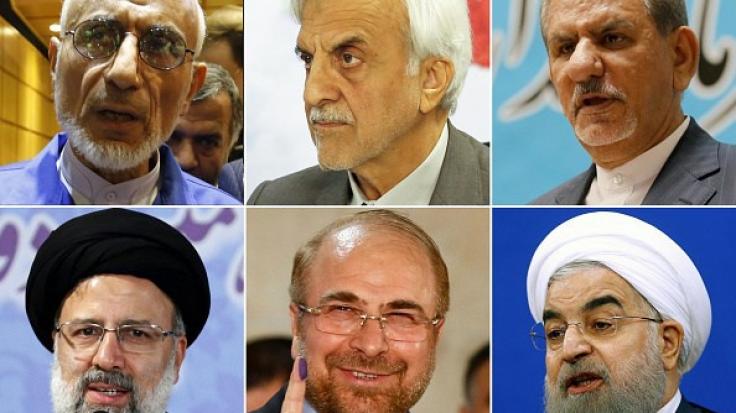About frontrunners in Iranian elections

Iran holds a presidential election in May, in which pragmatist President Hassan Rouhani is seeking re-election against hardline rivals who have been gearing up for a political showdown.
Within Iran‘s complex mix of clerical rulers and elected officials, Supreme Leader Ayatollah Ali Khamenei has the final say on all state matters, including Tehran’s foreign policy.
The Guardian Council, charged with vetting all candidates, disqualified hardline former president Mahmoud Ahmadinejad from running for the 19 May election.
Following are the main contenders out of six qualified candidates to run for the upcoming election:
PRESIDENT HASSAN ROUHANI
A mid-ranking Shi’ite Muslim cleric, Rouhani won a landslide victory in 2013 by promising to endIran‘s international isolation and create a freer society for Iranians.
Rouhani, 68, championed a nuclear deal with six major powers in 2015 that ended a more than decade-old standoff with the West. Under the deal, most sanctions imposed on Iran were lifted in 2016, in return for Tehran curbing its nuclear programme.
Iranian reformists, led by former President Mohammad Khatami, have endorsed Rouhani, whose hardline rivals say he has failed to revive the economy despite sanctions being lifted.
Rouhani, also a lawyer, is the seventh president of Iran since the 1979 Islamic revolution.
EBRAHIM RAISI
A close ally of Khamenei, Raisi is seen as the main hardline candidate challenging Rouhani in the election. The influential but mid-ranking cleric in the Shi’ite Muslim hierarchy, has been a senior official for decades in the judiciary, which enforces clerical control of the country.
Raisi, a law professor, has criticised Rouhani’s economic record, portraying himself as a champion of the poor. He has promised a revival of the values of the Islamic Revolution.
Hardliners have so far supported Raisi, appointed by Khamenei in 2016 as the custodian of Astan Qods Razavi, an organisation in charge of a multi-billion-dollar religious foundation that manages donations to Iran‘s holiest shrine in the northern city of Mashhad.
Raisi was one of four sharia (Islamic law) judges who oversaw executions of thousands of political prisoners in 1988.
Some Iranian politicians believe Raisi is being groomed to succeed Khamenei and the presidency is just a first step. Khamenei served as a president for two terms before taking power in 1989.
MOHAMMAD BAQER QALIBAF
A former police chief, Qalibaf has been the mayor of Tehran since 2005 and is viewed as a pragmatic conservative. The former member of Iran‘s elite Revolutionary Guards (IRGC), Qalibaf has been a staunch critic of Rouhani’s economic policy. He has promised to more than double Iran’s income and tackle unemployment by creating five million jobs.
Qalibaf, born in 1961, lost to Ahmadinejad in 2005 and Rouhani in 2013 presidential elections.
His popularity was damaged by a corruption investigation in 2016 and the collapse of a tower in Tehran, which killed 20 firefighters.
ESHAQ JAHANGIRI
Iran‘s first vice president, Jahangiri is a moderate who served as the minister of mines and industries from 1997 to 2005. Jahangiri, 60, said he threw his hat into the ring to “stand by Rouhani and complement him”.
Jahangiri registered to run for the election amid concern among Rouhani’s allies that the president might be disqualified by the Guardian Council. He is expected to drop out of the election to avoid a split of the moderate camp’s votes.
Source: komnews.org
